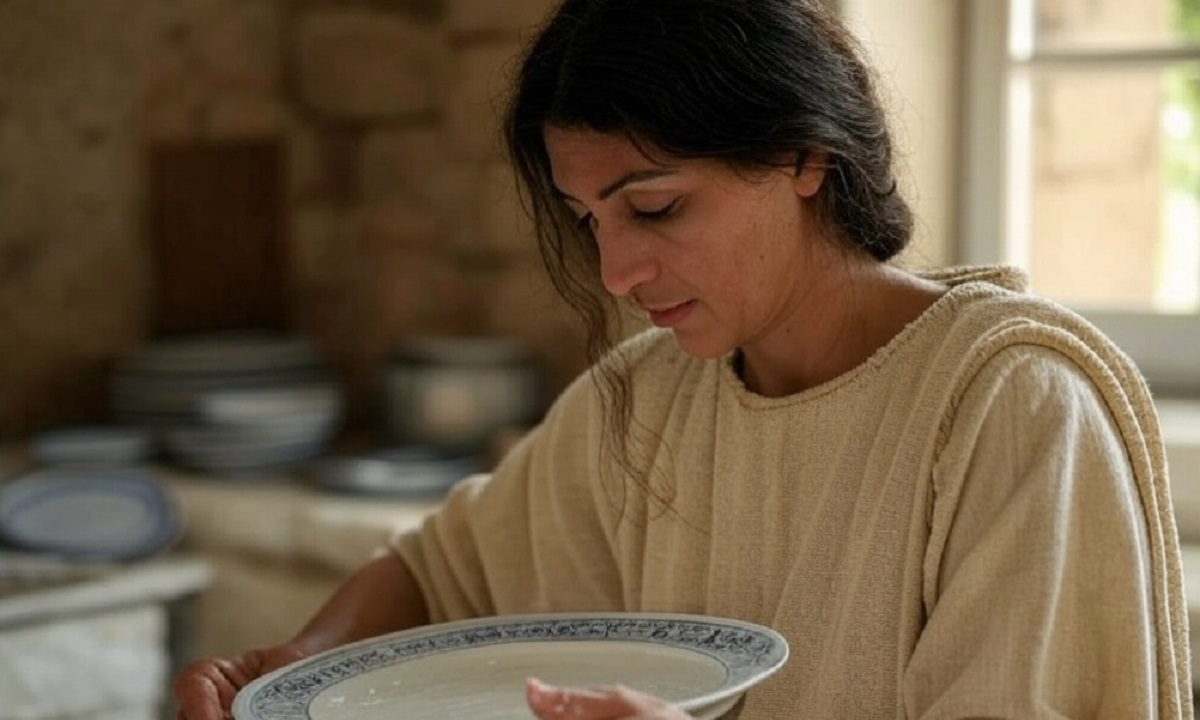What was never missing from an ancient… sink?
While they didn’t have dish soap as we know it today, ancient Greek women had their own clever, eco-friendly ways of keeping their kitchenware clean, relying entirely on natural materials found in their environment.
To remove grease and food residue, they commonly used sand or ash for their absorbent and abrasive properties. Dishes were then rinsed with water—often seawater, since the salt helped break down oils. Lemon juice and vinegar were also used to tackle strong odors and stubborn food remnants.
To keep things smelling fresh, herbs and aromatic plants like thyme and mint were often added to the cleaning process. These not only left behind a pleasant scent but also served as natural disinfectants.
In some cases, women used clay or fine, gritty soil to scrub and polish their ceramic cookware. As for scrubbing tools, they didn’t rely on synthetic sponges or brushes—instead, they used pieces of cloth, sea sponges, or even small twigs and plant branches to get the job done.
Though simple, their dishwashing methods were surprisingly effective—and environmentally friendly, centuries ahead of their time. No chemicals, just the power of nature and a bit of ingenuity.









